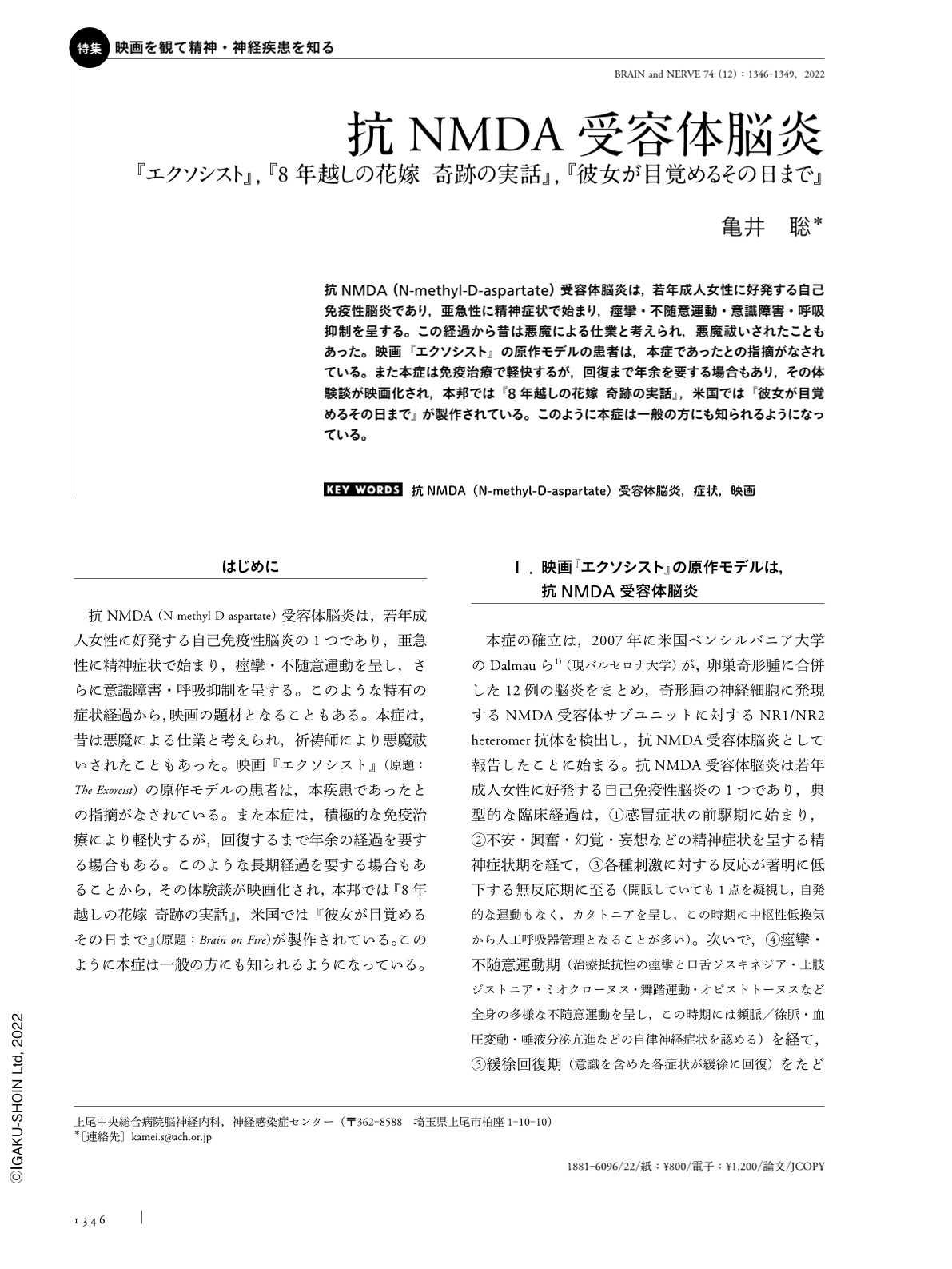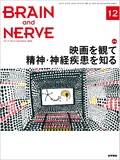Japanese
English
- 有料閲覧
- Abstract 文献概要
- 1ページ目 Look Inside
- 参考文献 Reference
抗NMDA(N-methyl-D-aspartate)受容体脳炎は,若年成人女性に好発する自己免疫性脳炎であり,亜急性に精神症状で始まり,痙攣・不随意運動・意識障害・呼吸抑制を呈する。この経過から昔は悪魔による仕業と考えられ,悪魔祓いされたこともあった。映画『エクソシスト』の原作モデルの患者は,本症であったとの指摘がなされている。また本症は免疫治療で軽快するが,回復まで年余を要する場合もあり,その体験談が映画化され,本邦では『8年越しの花嫁 奇跡の実話』,米国では『彼女が目覚めるその日まで』が製作されている。このように本症は一般の方にも知られるようになっている。
Abstract
Anti-N-methyl-D-aspartate (NMDA) receptor encephalitis is one of the most common forms of autoimmune encephalitis. It is more prevalent in young adult women than it is in men. The disease is characterized by a rapid progression of psychiatric symptoms and/or cognitive impairment. Common symptoms include changes in behavior (i.e. hallucination, paranoia, and aggression etc.), seizures, memory deficit, abnormal movements, and coma. Based on these symptoms, it was historically thought that this ‘behavior’ was the work of the devil, and exorcism by a shaman was sometimes required. In line with this, it has been suggested that the patient who the original Exorcist movie was based on had this disease. Although immunotherapy is an effective treatment for anti-NMDA encephalitis, recovery is slow with the majority of patients requiring more than a year after disease onset to make a full recovery. In light of this, the stories and experiences of patients with this disease have been depicted in films. Examples of the films include: The 8-year engagement (2017), a Japanese film directed by Takahisa Zeze, and Brain on fire (2016), directed by Irish filmmaker Gerrard Barrett. These films help to raise awareness and make this disease more recognized by the general public.

Copyright © 2022, Igaku-Shoin Ltd. All rights reserved.


